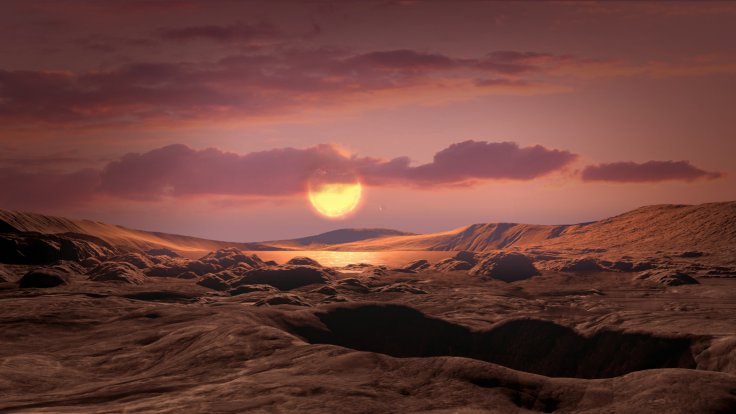
A new study report has suggested that dusty alien planets are more likely to host extraterrestrial life. Until now, scientists have considered several factors to determine the habitability of planets and it includes temperature and composition. During this new study, scientists tried to explore whether dust plays any role in determining the habitability of a space body.
The Connection Between Dust and Alien Life
Space experts are well aware of the fact that dust plays a crucial role in determining climate on earth and Mars. This new study conducted by at the University of Exeter in the U.K., the Met Office and the University of East Anglia in Norwich, England, suggested that exoplanets with considerable amounts of airborne mineral dust could be habitable within a greater range of distance from their respective stars. According to the study team, this factor will open up a wider window for exoplanets that could host life, sometimes in its microbial form.
Scientists, during this research, noted that the significant presence of dust could cool the hot dayside of exoplanets which have synchronous rotation and will also warm the night side which will be cool. As these planets synchronously rotate the star, these space bodies will have a permanent day and night side.
"On Earth and Mars, dust storms have both cooling and warming effects on the surface, with the cooling effect typically winning out. But these 'synchronized orbit' planets are very different. Here, the dark sides of these planets are in perpetual night, and the warming effect wins out, whereas on the dayside, the cooling effect wins out. The effect is to moderate the temperature extremes, thus making the planet more habitable," said Ian Boutle, a researcher at the Met Office and the lead author of the study in a recent statement.
Can Humans Monitor These Dusty Planets to Find Alien Life?
Even though dust can be considered a crucial factor in determining the habitability of alien life, scientists believe that a significant amount of dust in these space bodies could obscure our ability to spot life.
"Airborne dust is something that might keep planets habitable, but also obscures our ability to find signs of life on these planets. These effects need to be considered in future research," said Manoj Joshi, a researcher at the University of East Anglia and the co-author of the study.









